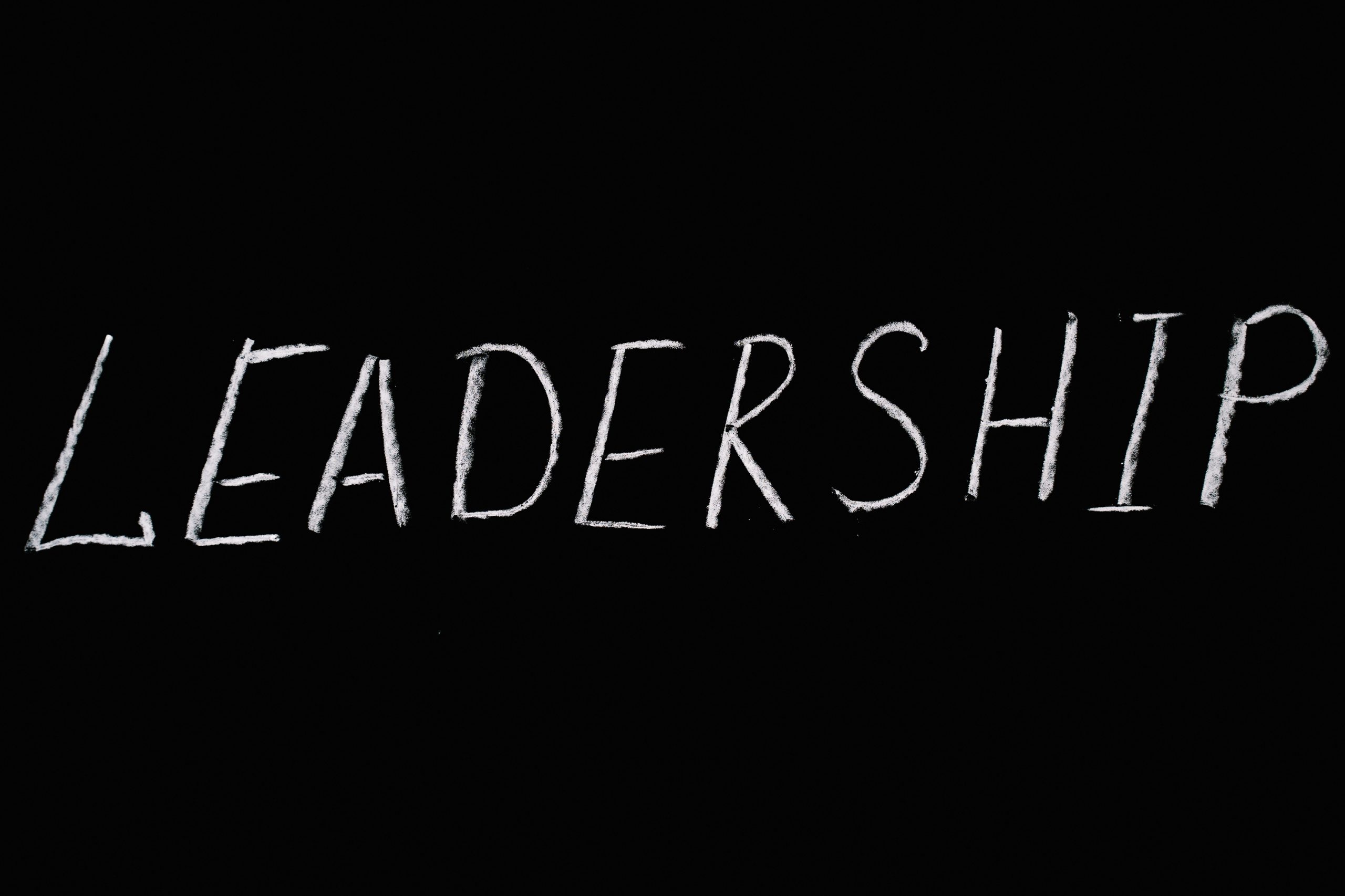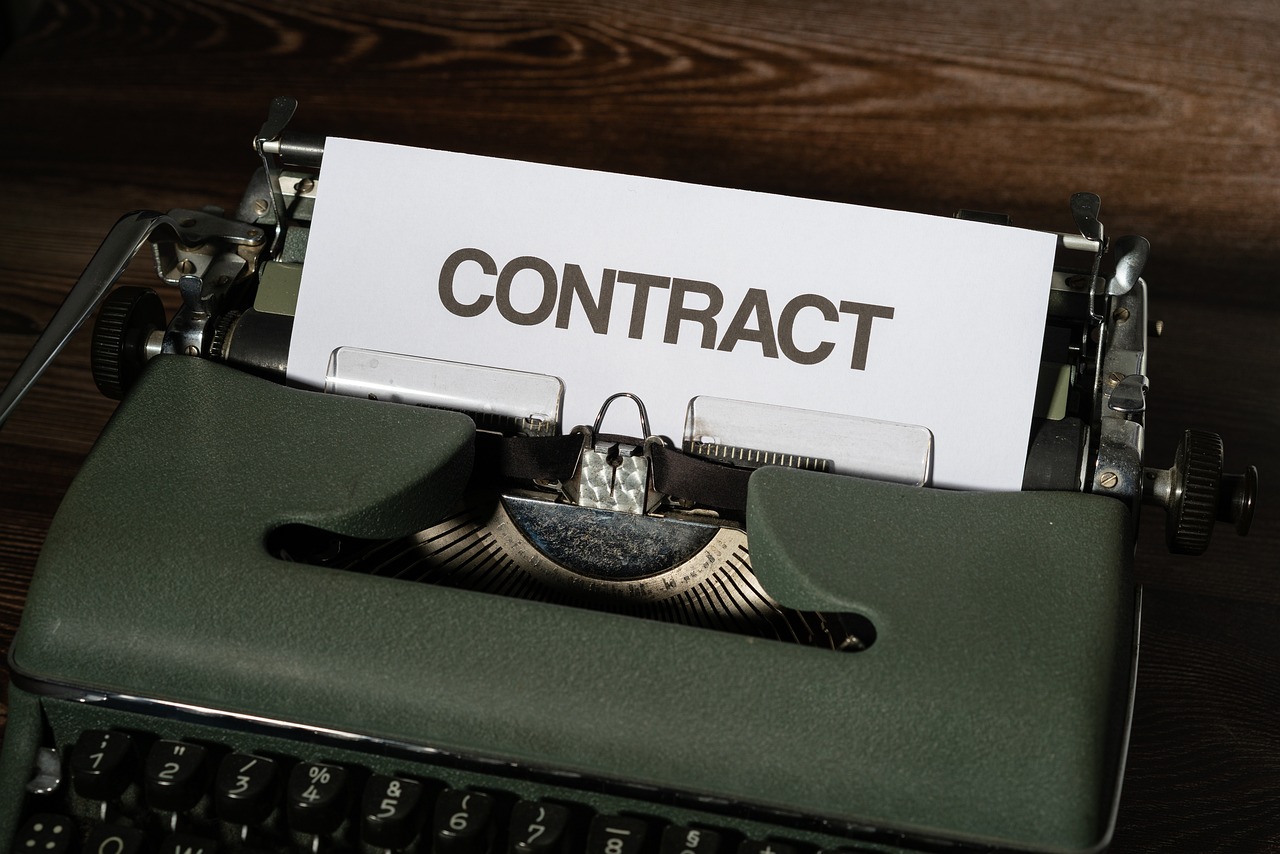Looking for a reliable contract lawyer in Nephi, Utah? Look no further! We understand that legal concerns can be overwhelming, but rest assured, we’re here to help. Whether you’re dealing with contract disputes, drafting agreements, or need legal advice, our experienced attorney is just a phone call away. With our expertise and dedication, we’ll guide you through the legal process and provide the reassurance you need. Don’t hesitate, take the next step and call our office today. Your legal assistance is just a phone call away.
Overview of Contract Law
Contract law is an essential part of our legal system and plays a crucial role in various aspects of our lives. Whether you are buying a house, starting a business, or entering into an employment agreement, contracts govern these transactions and ensure that all parties involved understand their rights and obligations. In this article, we will explore the basic principles of contract law, the importance of hiring a contract lawyer, and the contract lawyer’s role in contract drafting and review.
Basic principles of contract law
At its core, contract law is based on the principle of mutual agreement between two or more parties. This agreement can be in the form of a written or verbal contract, as long as it contains certain essential elements. These elements include an offer, acceptance, consideration, and the intention to create legal relations.
An offer is a proposal made by one party to another, outlining the terms of the contract. Acceptance occurs when the other party agrees to the terms of the offer. Consideration refers to the exchange of something of value, such as money or services, between the parties. Lastly, the intention to create legal relations means that both parties intend for the contract to be legally binding.
Understanding these basic principles is crucial when entering into any contractual agreement. However, contract law can be complex, and it is always advisable to seek the assistance of a contract lawyer to ensure that your rights are protected.
Importance of hiring a contract lawyer
While it may be tempting to handle contract matters on your own, hiring a contract lawyer is crucial to ensure the legality and enforceability of your agreements. Contract lawyers specialize in contract law and possess the expertise needed to navigate the intricacies of drafting, reviewing, and negotiating contracts.
One of the key benefits of hiring a contract lawyer is their ability to identify potential risks, ambiguities, and unfair terms in contracts. They have the knowledge and experience to assess the language used in contracts and can help safeguard your interests by negotiating more favorable terms. Without professional assistance, you run the risk of overlooking crucial details that could lead to costly disputes in the future.
Additionally, contract lawyers understand the specific laws and regulations governing contracts in your jurisdiction. This knowledge is particularly important when dealing with contracts in Nephi, Utah, as each state may have its own unique laws and requirements. By hiring a contract lawyer familiar with local laws, you can ensure that your contracts comply with all necessary legal obligations.
Contract lawyer’s role in contract drafting and review
Contract drafting and review are significant aspects of a contract lawyer’s role. When drafting a contract, a lawyer will work closely with you to understand your goals, needs, and expectations. They will ensure that all necessary provisions are included and that the language used is clear and unambiguous. This attention to detail is crucial to avoid any future misunderstandings and to protect your interests.
In contract review, a contract lawyer thoroughly examines the terms and conditions of an existing contract to identify any potential pitfalls, ambiguities, or unfair clauses. They will assess the legal enforceability of the contract and advise you on any amendments or negotiations that may be required. This comprehensive review process can help prevent disputes and ensure that the contract accurately reflects your intentions.
By entrusting the drafting and review of your contracts to a contract lawyer, you can have peace of mind knowing that your agreements are legally robust and in your best interest. Their expertise and attention to detail can save you time, money, and potential legal headaches down the line.
Understanding Contract Disputes
While we strive for smooth and harmonious contractual relationships, disputes can sometimes arise. Whether it’s a breach of contract, disagreement over interpretation, or failure to perform obligations, contract disputes can disrupt business operations and cause significant financial losses. In this section, we will explore the common types of contract disputes, legal remedies available, and the benefits of hiring a contract lawyer to handle such disputes.
Common types of contract disputes
Contract disputes can take various forms, depending on the nature of the contract and the circumstances surrounding the disagreement. Some common types of contract disputes include:
-
Breach of contract: This occurs when one party fails to fulfill their obligations as outlined in the contract. It can include failure to deliver goods or services, non-payment, or failure to meet specified deadlines.
-
Misrepresentation: If one party provides false or misleading information that induces the other party to enter into the contract, it can lead to a dispute. Misrepresentation can involve false statements, omissions, or half-truths.
-
Disagreements over contract interpretation: Contracts can sometimes contain ambiguous terms or language that can lead to disputes. When parties have different interpretations of the contract provisions, they may need legal intervention to resolve the issue.
-
Non-performance or defective performance: When a party fails to perform their obligations according to the contract’s requirements or performs them inadequately, it can result in a dispute. This can include issues such as shoddy workmanship, late delivery, or substandard quality.
Understanding the common types of contract disputes can help you identify potential risks and take proactive measures to mitigate them. By engaging the services of a contract lawyer, you can navigate these disputes effectively and protect your rights.
Legal remedies for contract disputes
In the event of a contract dispute, there are various legal remedies available to the injured party. These remedies are aimed at compensating the injured party and restoring them to the position they would have been in had the contract been properly fulfilled. Some common legal remedies for contract disputes include:
-
Damages: Damages are a monetary award designed to compensate the injured party for the losses they have suffered as a result of the breach of contract. There are different types of damages, such as compensatory damages to cover direct losses, consequential damages for indirect losses, and punitive damages to punish the breaching party.
-
Specific performance: In cases where monetary compensation is inadequate, the court may order specific performance. This means that the breaching party will be required to fulfill their obligations as outlined in the contract. Specific performance is usually only granted in cases involving unique assets or where monetary compensation is not a sufficient remedy.
-
Rescission: Rescission is the cancellation of the contract, returning both parties to their pre-contract positions. This remedy is typically available in cases involving misrepresentation, fraud, or duress.
-
Injunctions: Injunctions are court orders that restrict or compel certain actions. They may be used to prevent a party from taking specific actions that would cause harm or require a party to do something they are obligated to do.
Legal remedies are complex and require a thorough understanding of contract law. By hiring a contract lawyer with expertise in handling contract disputes, you can increase your chances of obtaining a favorable outcome and protecting your interests.
Benefits of hiring a contract lawyer for contract disputes
When facing a contract dispute, hiring a contract lawyer can provide several benefits.
First and foremost, a contract lawyer will be well-versed in contract law and will possess the knowledge and experience needed to navigate the complexities of your specific dispute. They will analyze the facts, review the contract, and advise you on the best course of action to protect your interests.
Furthermore, a contract lawyer will handle all legal aspects of the dispute on your behalf, including negotiations with the other party. They will seek favorable resolutions and work towards finding mutually beneficial solutions to the dispute. This can help reduce animosity between the parties and maintain business relationships.
Having a contract lawyer represent you in a contract dispute also sends a strong message to the other party. It demonstrates that you are serious about protecting your rights and that you are willing to invest in the necessary legal support to achieve a fair resolution.
Finally, hiring a contract lawyer allows you to focus on other important aspects of your life or business while they handle the legal complexities of the dispute. This can alleviate stress and give you peace of mind, knowing that your case is in capable hands.
A contract dispute can be time-consuming and emotionally draining. By engaging the services of a contract lawyer, you can ensure that your rights are protected, and you can achieve the best possible outcome in the dispute.

Contract Lawyer’s Expertise
Contract lawyers possess specialized knowledge and expertise in contract negotiation, drafting, and review. Their role goes beyond simply understanding the legal aspects of contracts; they also ensure the enforceability and protection of your interests. In this section, we will discuss the specific areas of expertise that contract lawyers bring to the table.
Contract negotiation and drafting
Contract negotiation is a critical process that requires effective communication and negotiation skills. A contract lawyer can represent your interests during negotiations, using their legal expertise to ensure that the contract terms are fair, reasonable, and protect your rights.
During the negotiation phase, a contract lawyer will work closely with you to understand your objectives and expectations. They will identify any potential risks or unfair terms in the proposed contract and advocate for necessary amendments. By having a contract lawyer negotiate on your behalf, you can level the playing field and increase the likelihood of achieving favorable terms.
Once the terms of the contract have been agreed upon, the contract lawyer will proceed with drafting the contract. This involves translating the negotiated terms into clear and legally enforceable language. Their expertise in contract drafting ensures that all necessary provisions are included and that the language used is precise, avoiding any potential ambiguities or misunderstandings.
Contract review and analysis
Contract review is a crucial part of a contract lawyer’s role. They analyze the terms and conditions of an existing contract to identify any potential risks, ambiguities, or unfair clauses. This comprehensive review process allows them to assess the legal enforceability of the contract and advise you on any necessary amendments or negotiations.
During the review process, the contract lawyer will pay careful attention to the language used in the contract, ensuring that it accurately reflects your intentions and protects your interests. They will also scrutinize any clauses related to dispute resolution, termination, intellectual property rights, and confidentiality to ensure that they are fair and reasonable.
By engaging a contract lawyer to review your contracts, you can gain a clear understanding of your rights and obligations. They will explain any legal jargon or complex provisions in plain language, allowing you to make informed decisions and mitigate potential risks.
Ensuring legal compliance in contracts
Contract lawyers are well-versed in local contract laws and regulations, ensuring that your contracts comply with all necessary legal obligations. This is particularly important when conducting business in Nephi, Utah, as each state may have its own unique laws and requirements.
A contract lawyer will ensure that your contracts meet all legal formalities, such as proper execution and consideration. They will also advise you on any industry-specific regulations that may affect your contractual obligations.
By enlisting the services of a contract lawyer, you can rest assured that your contracts are legally compliant and minimize the risk of facing legal consequences due to non-compliance.
Why Hire a Contract Lawyer in Nephi, Utah
Hiring a contract lawyer in Nephi, Utah, offers several advantages specific to the local environment. From understanding Utah’s contract laws to navigating local legal procedures, a local contract lawyer can provide valuable insights and assistance.
Benefits of hiring a local contract lawyer
When it comes to legal matters, having a local contract lawyer can make a significant difference. A contract lawyer based in Nephi, Utah, will have in-depth knowledge of state-specific contract laws and regulations. They will understand the intricacies of local legal procedures and can navigate them efficiently on your behalf.
Furthermore, a local contract lawyer will have an established network within the legal community, allowing them to leverage relationships and resources to your advantage. They will be familiar with local judges, attorneys, and court personnel, which can help streamline the legal process and potentially lead to more favorable outcomes.
In addition, hiring a local contract lawyer means proximity and accessibility. You can conveniently meet in person to discuss your legal matters, ask questions, and seek guidance. This personal touch can foster a strong working relationship, ensuring that your needs are met and your concerns are addressed promptly.
Understanding Utah’s contract laws
Every state has its own unique contract laws, and Utah is no exception. Hiring a contract lawyer familiar with Utah’s contract laws is essential to ensure that your contracts comply with all necessary legal obligations.
Utah follows the principle of freedom of contract, meaning that parties have the freedom to mutually agree upon contract terms as long as they are not illegal or against public policy. However, there are specific laws and regulations that govern certain types of contracts, such as consumer contracts, employment contracts, and real estate contracts.
A contract lawyer in Nephi, Utah, will possess a deep understanding of these laws and be able to guide you through the legal requirements specific to your situation. They will help you avoid common pitfalls and ensure that your contracts are enforceable and provide adequate protection.
Navigating local legal procedures
Legal procedures can vary from state to state, and understanding the specific procedures in Nephi, Utah, is crucial when dealing with contract disputes or other contract-related matters. A local contract lawyer will be familiar with the local legal landscape and can guide you through the necessary steps.
From filing legal documents with the appropriate courts to attending hearings or negotiations, a local contract lawyer will ensure that all procedural requirements are met. They will provide you with guidance and representation throughout the legal process, advocating for your rights and protecting your interests.
By hiring a contract lawyer in Nephi, Utah, you can navigate the local legal landscape with confidence, knowing that you have a legal professional with extensive knowledge of the area’s specific legal requirements.

Importance of Legal Assistance in Contract Formation
The formation of a contract is a critical stage that requires careful attention to detail. While it may be tempting to draft your own contracts or use generic templates found online, this approach can lead to significant issues down the line. In this section, we will explore the risks of do-it-yourself (DIY) contract drafting, common contract pitfalls to avoid, and the importance of ensuring enforceability and protection of your interests.
Risks of DIY contract drafting
Do-it-yourself (DIY) contract drafting is becoming increasingly popular, thanks to the abundance of online resources and templates available. However, there are serious risks associated with this approach.
First and foremost, DIY contracts may lack the necessary language and provisions to adequately protect your interests. Generic templates found online may not address the unique circumstances of your situation or include essential clauses specific to your industry or jurisdiction. This can leave you vulnerable to disputes or potential legal consequences.
Furthermore, DIY contracts often fail to consider the specific legal requirements and regulations that govern certain types of contracts. Each state may have its own laws and guidelines that need to be followed. By not seeking professional legal assistance, you run the risk of non-compliance, which can result in voiding the contract or facing legal consequences.
Another risk of DIY contract drafting is the potential for ambiguity or vagueness in the contract terms. The language used in contracts is crucial to ensure that all parties understand their rights and obligations. Failure to use clear and concise language can lead to misunderstandings and disputes down the line.
By engaging a contract lawyer to assist with contract formation, you can minimize these risks and ensure that your contracts are legally sound, enforceable, and provide adequate protection.
Avoiding common contract pitfalls
Contract formation can be fraught with pitfalls and potential errors. By being aware of these pitfalls, you can take steps to avoid them and increase the likelihood of entering into a successful and mutually beneficial contractual agreement.
One common pitfall is entering into a contract without fully understanding its terms and implications. It is crucial to thoroughly read and comprehend the contract before signing. If any provisions are unclear or confusing, seeking legal assistance can help clarify their meaning and potential impact.
Another common mistake is failing to include important details or clauses in the contract. From specific performance expectations and delivery timelines to dispute resolution mechanisms and termination clauses, every aspect of the agreement needs to be clearly defined. Failure to address crucial elements can lead to misunderstandings and disputes.
Additionally, failing to consider the potential for future changes or unforeseen circumstances can also pose challenges. Contracts should be drafted with flexibility in mind, allowing for modifications or adaptations if necessary. A contract lawyer can help you anticipate potential scenarios and include provisions that protect your interests in various situations.
By seeking legal assistance during the contract formation stage, you can avoid common pitfalls and ensure that your contracts accurately reflect your intentions, provide adequate protection, and minimize the risk of disputes.
Ensuring enforceability and protection of interests
Contracts are legal documents that outline the rights and obligations of the parties involved. Ensuring the enforceability of these contracts is crucial to protect your interests and maintain the integrity of the agreement.
A contract lawyer can help ensure the enforceability of your contracts by carefully drafting and reviewing the language used. They will include all necessary provisions to protect your rights, clearly define expectations, and mitigate potential risks. By employing their legal expertise, a contract lawyer can minimize the chances of any ambiguity or loose interpretation, making it easier to enforce the terms of the contract should a dispute arise.
Moreover, a contract lawyer will help you identify any potential gaps or oversights in the contract that may expose you to legal risks. From intellectual property rights and confidentiality clauses to warranties and indemnification provisions, they will ensure that your interests are adequately protected and that you are not assuming unnecessary liability.
By enlisting the assistance of a contract lawyer during the contract formation stage, you can have confidence that your contracts are properly drafted, legally enforceable, and provide the necessary protection for your interests.
Key Considerations in Contract Review
Contract review is a critical process that allows parties to carefully examine the terms and conditions of an existing contract. It helps identify potential pitfalls, ambiguities, and unfair terms, ultimately ensuring that the contract accurately reflects the intentions and protects the interests of all parties involved. In this section, we will discuss the key considerations when reviewing a contract, including identifying ambiguous or unfair terms, assessing potential risks and liabilities, and negotiating favorable terms.
Identifying ambiguous or unfair terms
During a contract review, it is essential to carefully examine the language used in the contract to identify any potential ambiguous or unfair terms. Ambiguous terms can lead to misunderstandings and disputes, while unfair terms can place one party at a disadvantage or create an imbalance of power.
An experienced contract lawyer will possess the skills needed to detect ambiguous terms and propose necessary amendments to make the contract provisions clear and unambiguous. They will also be well-versed in contract law and any applicable regulations, ensuring that the contract does not contain any unfair or unconscionable terms.
By having a contract lawyer review your contracts, you can be confident that all terms are fair, reasonable, and protect your interests.
Assessing potential risks and liabilities
Contract review is an opportunity to assess the potential risks and liabilities associated with the contractual agreement. By carefully examining the contract, a contract lawyer can help identify any provisions that may expose you to unnecessary risk or liability.
For example, indemnification clauses, limitation of liability provisions, and warranties require careful consideration to ensure they adequately protect your interests. A contract lawyer will analyze these provisions and advise you on any amendments or negotiation strategies that may be necessary to minimize your exposure to risk.
Furthermore, a contract lawyer will conduct a thorough analysis of the contractual obligations and assess any potential legal consequences in the event of a breach or non-performance. Understanding the implications of these obligations is crucial to make informed decisions and protect your interests.
Negotiating favorable terms
Contract review presents an opportunity to negotiate more favorable terms. A contract lawyer can help identify provisions that may be disadvantageous or unduly burdensome and propose alternative solutions.
With their negotiation skills and legal expertise, a contract lawyer can enter into discussions with the other party to seek mutually beneficial outcomes. They will advocate for your interests and work towards achieving a contract that better aligns with your objectives.
Negotiating favorable terms can be a complex process, requiring effective communication and an understanding of the other party’s objectives. By leveraging the skills and knowledge of a contract lawyer, you can increase your chances of achieving a contract that better serves your needs.
By conducting a thorough contract review and engaging the services of a contract lawyer, you can minimize risk, protect your interests, and negotiate more favorable terms in your contractual agreements.
Contract Negotiation Strategies
Contract negotiation is a critical process that requires effective communication, negotiation skills, and a deep understanding of the contractual terms. By employing strategic negotiation techniques, you can increase the likelihood of achieving mutually beneficial outcomes and building strong relationships with the other party. In this section, we will discuss key contract negotiation strategies, including effective communication and negotiation skills, understanding the other party’s objectives, and seeking mutually beneficial solutions.
Effective communication and negotiation skills
Effective communication is the foundation of successful contract negotiation. To effectively communicate, it is essential to listen carefully, clearly articulate your expectations, and be open to understanding the other party’s perspective. By actively engaging in a dialogue, you can establish a rapport and build trust, increasing the chances of reaching a mutually agreeable outcome.
Negotiation skills play a significant role in contract negotiation as well. These skills include persuasion, problem-solving, and the ability to find common ground. A skilled contract lawyer will possess these negotiation skills and employ them to advocate for your interests while maintaining a professional and respectful approach.
Furthermore, effective communication and negotiation skills allow you to clearly express your needs and concerns, ask questions, and seek clarification on ambiguous or unfair terms. By effectively articulating your position, you can increase the chances of reaching a mutually satisfactory solution.
Understanding the other party’s objectives
Understanding the other party’s objectives is key to successful contract negotiation. By understanding their goals, needs, and constraints, you can identify potential areas for compromise and develop creative solutions that meet both parties’ interests.
A contract lawyer can conduct thorough research and due diligence to assess the other party’s business practices, market position, and financial stability. This information allows them to better understand the other party’s motivations and negotiate from a position of strength.
Furthermore, understanding the other party’s objectives enables you to anticipate potential areas of disagreement and proactively address them during the negotiation process. By demonstrating empathy and a willingness to find mutually beneficial solutions, you can foster a cooperative atmosphere and build a solid foundation for future business relationships.
Seeking mutually beneficial solutions
In contract negotiation, it is essential to seek mutually beneficial solutions. A win-win outcome ensures that both parties’ interests are sufficiently protected and that the contractual arrangement is sustainable in the long term.
A contract lawyer can help identify areas where compromises can be made and propose alternative solutions that meet both parties’ needs. They will leverage their negotiation skills and legal expertise to find common ground and achieve a mutually satisfactory agreement.
Seeking mutually beneficial solutions not only improves the chances of reaching a successful outcome but also strengthens the business relationship between the parties. By demonstrating a commitment to fairness and cooperation, you can build trust and lay the foundation for future collaborations.
By employing these contract negotiation strategies and engaging the services of a skilled contract lawyer, you can navigate the negotiation process effectively, achieve mutually beneficial outcomes, and protect your interests.
Common Mistakes in Contract Disputes
Contract disputes can be challenging and costly, and they often arise due to common mistakes made during the contract formation or performance stage. By being aware of these common mistakes, you can take proactive measures to avoid them and minimize the chances of facing a contract dispute. In this section, we will discuss three common mistakes in contract disputes: failure to clearly define obligations and responsibilities, ignoring contractual deadlines and performance, and lack of documentation and record-keeping.
Failure to clearly define obligations and responsibilities
One of the most common mistakes in contract disputes is the failure to clearly define obligations and responsibilities. Vague or ambiguous contract terms can lead to misunderstandings and disagreements, ultimately resulting in a breach of contract.
To avoid this mistake, it is crucial to be thorough and specific when drafting contracts. Clearly define the obligations and responsibilities of each party, including performance expectations, deliverables, timelines, and quality standards. By leaving no room for misinterpretation, you can reduce the likelihood of disputes arising from differing expectations.
Engaging the services of a contract lawyer during the contract drafting stage can ensure that the language used is clear, precise, and unambiguous. They will help you identify potential areas of confusion and propose necessary amendments to accurately reflect your intentions.
Ignoring contractual deadlines and performance
Another common mistake in contract disputes is ignoring contractual deadlines and performance obligations. Failing to meet specified deadlines or perform obligations as outlined in the contract can result in a breach of contract and potential legal consequences.
It is crucial to meticulously keep track of all contractual deadlines and ensure that all necessary actions are taken on time. This includes meeting delivery schedules, making payments, or fulfilling any other obligations outlined in the contract.
By integrating effective project management and record-keeping systems into your business practices, you can better manage contractual deadlines and performance obligations. Regularly reviewing the contract and ensuring that all parties are aware of their responsibilities can help prevent misunderstandings and disputes.
Lack of documentation and record-keeping
A lack of documentation and record-keeping can also contribute to contract disputes. Properly documenting all communications, changes, and performance can provide crucial evidence in the event of a dispute.
Maintaining a comprehensive paper trail of all contract-related activities is essential. This includes documenting any amendments, ensuring written confirmations of verbal agreements, and tracking any changes or variations to the contract’s initial terms. Effective record-keeping can protect your interests and support your position in the event of a dispute.
By establishing robust record-keeping practices within your organization and seeking legal assistance during contract drafting and performance, you can minimize the risk of disputes resulting from a lack of documentation.
By avoiding these common mistakes and adopting proactive measures, you can reduce the chances of contract disputes, protect your interests, and maintain the integrity of your contractual agreements.

Alternative Dispute Resolution in Contract Disputes
Contract disputes are not uncommon, and when they arise, resolving them in a timely and efficient manner is crucial. While litigation is often seen as the traditional route, alternative dispute resolution (ADR) methods such as mediation and arbitration offer viable alternatives. In this section, we will discuss alternative dispute resolution in contract disputes, the benefits of ADR methods, and when to consider litigation.
Understanding mediation and arbitration
Mediation and arbitration are two commonly used alternative dispute resolution methods in contract disputes. These methods provide parties with a means to resolve their disagreements outside the courtroom and without the need for extensive litigation.
Mediation involves the use of an impartial third-party mediator who assists the parties in negotiating a resolution. The mediator does not make binding decisions but instead helps facilitate communication and guides the parties towards a mutually agreeable outcome. Mediation allows for flexibility and encourages open dialogue, making it well-suited for parties who want to preserve their relationship and have more control over the resolution process.
Arbitration, on the other hand, is a more formal process where an arbitrator, or a panel of arbitrators, listens to both parties’ arguments and evidence and makes a binding decision. The arbitrator’s decision is typically based on the evidence presented and the applicable law. Unlike mediation, arbitration results in a legally binding decision that is enforceable in court.
Benefits of alternative dispute resolution methods
Alternative dispute resolution methods offer several benefits compared to traditional litigation:
-
Cost-effective: ADR methods are generally more cost-effective than litigation. They involve fewer procedural requirements, which can significantly reduce legal fees and expenses. Additionally, ADR methods often achieve quicker resolutions, minimizing the impact on business operations and reducing potential financial losses.
-
Confidentiality: Unlike litigation, which takes place in a public forum, alternative dispute resolution methods offer confidentiality. This can be particularly important when dealing with sensitive or proprietary information, as parties can maintain the privacy of their business affairs.
-
Flexibility and control: ADR methods provide parties with more flexibility and control over the resolution process. Parties can choose their mediator or arbitrator based on their specific needs and expertise. Moreover, ADR methods offer more room for creative solutions that may not be available in a courtroom setting.
-
Preserving relationships: Contract disputes can strain business relationships. ADR methods, especially mediation, allow parties to preserve their relationships by facilitating communication, finding common ground, and focusing on mutually beneficial solutions. This can be particularly advantageous when parties intend to continue their business dealings after the dispute is resolved.
When to consider litigation
While alternative dispute resolution methods offer many benefits, there may be situations where litigation is more appropriate or necessary. Litigation may be warranted in the following circumstances:
-
Inability to reach a mutually agreeable resolution: If parties are unable to find a satisfactory resolution through mediation or arbitration, litigation may be the next course of action.
-
Urgency for injunctive relief: In some cases, time is of the essence and seeking injunctive relief through the court system may be necessary. This often occurs when party A needs to prevent party B from taking certain actions that could cause irreparable harm.
-
Complex legal or factual issues: If the contract dispute involves complex legal or factual issues that require a detailed examination and interpretation of the law, litigation may be necessary. The court system offers a formal process that allows for extensive discovery, expert testimony, and examination of evidence.
-
Need for precedent-setting decisions: Litigation has the potential to set legal precedents, which can be advantageous in cases where clarifying legal issues or establishing standards is necessary.
Ultimately, the decision to pursue litigation or alternative dispute resolution methods depends on the specific circumstances and the goals of the parties involved. Seeking legal advice from a contract lawyer is essential to determine the most appropriate course of action based on your unique situation.
Finding the Right Contract Lawyer in Nephi, Utah
When seeking legal assistance for your contract-related matters in Nephi, Utah, finding the right contract lawyer is crucial. The right lawyer can provide you with the expertise, guidance, and support needed to navigate the complexities of contract law. In this section, we will discuss key considerations for finding the right contract lawyer, including researching contract lawyers in the area, considering experience and specialization, and scheduling consultations to assess rapport.
Researching contract lawyers in the area
Researching contract lawyers in the Nephi, Utah area is an important first step in finding the right legal representation. Begin by compiling a list of contract lawyers who practice in Nephi and surrounding areas. You can use online directories, legal association websites, or seek recommendations from trusted sources.
As you conduct your research, pay attention to the lawyer’s qualifications, experience, and areas of specialization. Look for lawyers who have a strong background in contract law and have successfully handled cases similar to yours. Review client testimonials and feedback to get a sense of the lawyer’s reputation and track record.
Considering experience and specialization
When selecting a contract lawyer, experience and specialization are key factors to consider. Contract law is a nuanced area of practice, and hiring a lawyer with specific expertise in this field can greatly benefit your case.
Consider the number of years the lawyer has been practicing contract law and their familiarity with the Nephi, Utah legal landscape. Assess their track record in handling contract disputes, negotiating contracts, and drafting complex agreements. Additionally, inquire about any certifications or specialized training they have obtained in contract law.
A lawyer who specializes in contract law will possess in-depth knowledge of the specific laws and regulations governing contracts in Nephi, Utah. This expertise enables them to provide tailored advice and representation based on your unique circumstances.
Scheduling consultations and assessing rapport
Once you have narrowed down your list of potential contract lawyers, schedule consultations to assess rapport and discuss your legal needs. Many lawyers offer initial consultations either for free or for a nominal fee. Take advantage of this opportunity to ask questions, share your concerns, and gauge the lawyer’s approach to your case.
During the consultation, pay attention to the lawyer’s communication style, responsiveness, and willingness to listen. A good contract lawyer should be attentive, patient, and empathetic. They should be able to explain complex legal concepts in a way that you can understand and provide clear guidance on how they can assist with your contract-related matters.
Additionally, consider the lawyer’s fee structure and billing practices. Discuss fees and payment arrangements upfront to ensure that they align with your budget and expectations.
Evaluating rapport and compatibility is crucial when selecting a contract lawyer. You need to feel comfortable and confident in the lawyer’s abilities and trust that they will prioritize your best interests. Engaging a contract lawyer with whom you have a good rapport will facilitate effective communication and collaboration, leading to better outcomes in your legal matters.
By conducting thorough research, considering experience and specialization, and assessing rapport during consultations, you can find the right contract lawyer in Nephi, Utah to handle your contract-related needs. Their expertise and support will give you peace of mind, knowing that your legal matters are in capable hands.
In conclusion, contract law is a complex and important aspect of legal practice. Hiring a contract lawyer in Nephi, Utah, can provide invaluable assistance in understanding contract principles, resolving disputes, and ensuring compliance with local laws. By recognizing the importance of legal assistance in contract matters, understanding key considerations in contract review, and employing effective contract negotiation strategies, you can navigate this intricate legal landscape with confidence. Remember, when it comes to contracts, seeking the expertise and guidance of a contract lawyer is always a wise choice.

























